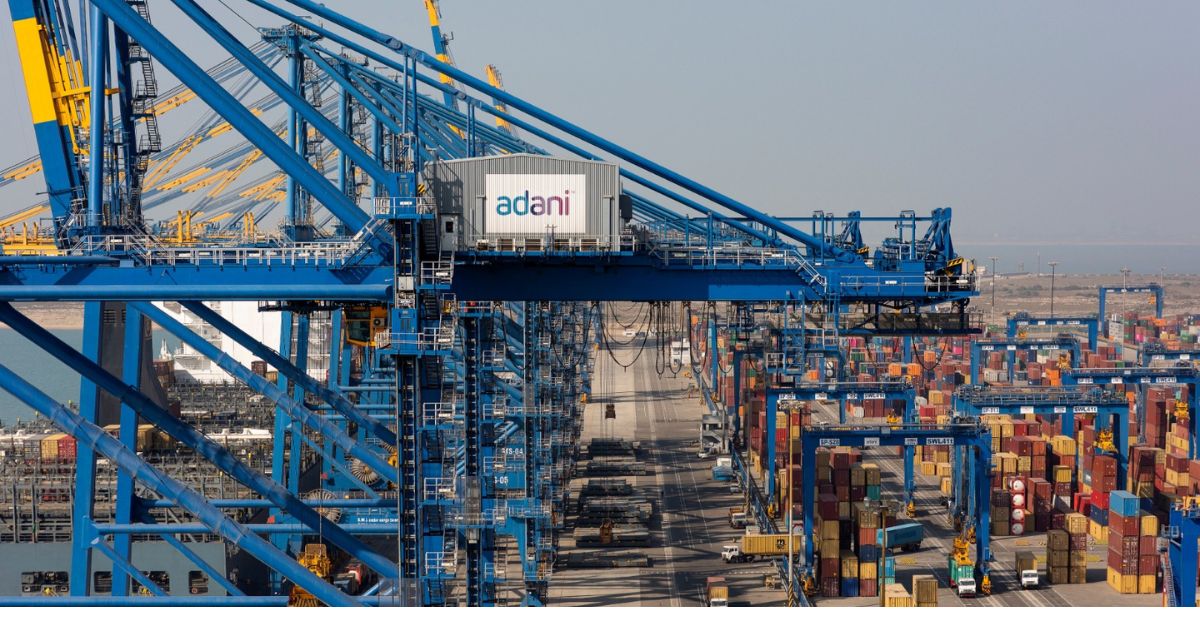Source: ET Infra
The figures illustrate how India’s biggest private port operator has been revolutionizing the industry, setting new milestones for operational excellence along the way.
Mundra, the flagship port of APSEZ, docked its maiden ship in 1998. Since then, APSEZ has built a network of 15 ports and terminals in the east and west coasts of India, redefining infrastructure and operational capabilities that ensures efficiency and industry leading turnaround time to drive maritime trade, both within and outside the country.
APSEZ’s journey towards becoming India’s largest port operator has been marked by acquisition of strategic assets across the country’s coastline.
In line with its vision for growth and innovation, the company has been identifying ports with potential to help it expand its footprint and provide it with a platform for transforming these facilities.
Two examples best exemplify the point.
Situated on the east coast, Dhamra Port in Bhadrak district of Odisha has emerged as a critical hub for dry cargo shipment in the region.
The all-weather port, about a four-hour drive from the state capital Bhubaneswar, is capable of handling some of the largest vessels afloat. Ten years ago, it handled just around 14 mt of cargo. Now, its capacity has gone up to over 42 mt, a three-fold increase.
About 1,200 km from Dhamra, Krishnapatnam Port in Nellore district of Andhra Pradesh is a multi-commodity facility, catering to the southern region of the country that has power, cement, and steel among other industries. In the past three years, the port’s cargo handling capacity has gone up 17 percent.
After their acquisition, APSEZ studied the existing facilities at Dhamra and Krishnapatnam and addressed the gaps by implementing tried and tested systems. From optimising port operations by improving processes for cargo handling and storage to streamlining logistics operations and building inland infrastructure to ensure seamless movement of cargo, APSEZ has been constantly innovating and evolving to meet the changing needs of partners, customers, and stakeholders.
“While acquiring strategic assets, APSEZ assesses the needs and potential for growth. The emphasis is on improving infrastructure and upgrading them to improve efficiency, optimise resources and sweat the assets,” said an APSEZ official. “For example, Dhamra Port had two berths in 2014. Now, it has five. A single railway line was earlier used for transportation of cargo; now, another line is being laid to connect it to the national railway network. Similar infrastructure has been created to strengthen the road network,” he added.
The deep draft port, APSEZ’s first buy on the east coast, can accommodate Capesize vessels and caters to industries in Odisha, Jharkhand and West Bengal. In 2014, it handled nearly 14.3 mt of cargo. In March 2024, it handled 42.8 mt, marking a 3X growth. Dhamra also has a liquefied natural gas (LNG) terminal of 5 mt capacity that helps fulfil the requirements of Assam, Bihar, Odisha, Uttar Pradesh, and West Bengal.
Krishnapatnam, an all-weather, deep-water port acquired by APSEZ in 2020, is equipped to handle large vessels and offers multimodal connectivity through road and railway lines. Electrification of cranes has been one of the major upgrades at the facility. Its current capacity is 75 mt, a significant increase from 64 mt four years ago. Apart from world- class infrastructure and dedicated storage facilities, it has mechanised cargo handling systems, which increase operational efficiency and reduce turnaround time.
“Mechanisation to facilitate loading and unloading of cargo through rakes, conveyor systems that ensure efficient movement of cargo from vessels and digitisation of processes reduce turnaround time at our ports. They drive competitiveness, enhance capacity and increase efficiency. And this has positioned APSEZ as a preferred partner for shipping lines and cargo companies,” the official said.
Karaikal port in Puducherry is in the vicinity of power plants and cement factories. Since it was taken over by APSEZ in 2023, it has seen a significant turnaround in cargo volume. In FY 23, it handled nearly 10 mt of cargo; in FY 24, the number went up to 13 mt.
APSEZ is known for its customer-centric approach, innovative logistics solutions, quick turnaround time and fast cargo and container evacuation processes. In fact, the learnings from Mundra – the use of technology, innovation and processes – have been replicated at all other ports owned by APSEZ. In one port, the turnaround time – a strong indicator of operational expertise – has been cut from 7.5 hours to 3.5 hours by improving processes and use of technology.
Over the years, APSEZ has successfully transformed its acquired assets into smart, technology-driven hubs with real-time tracking and monitoring solutions. Through regular training programmes, it ensures optimal utilisation of resources and upskilling of manpower.
“APSEZ’s journey shows how it has strived for operational excellence. By leveraging operational capabilities and commitment to excellence, it has transformed ports and set new benchmarks for efficiency and productivity. As it continues its quest for growth and innovation, APSEZ remains poised to shape the future of India’s maritime infrastructure and contribute to the nation’s economic development and prosperity,” said the official.








